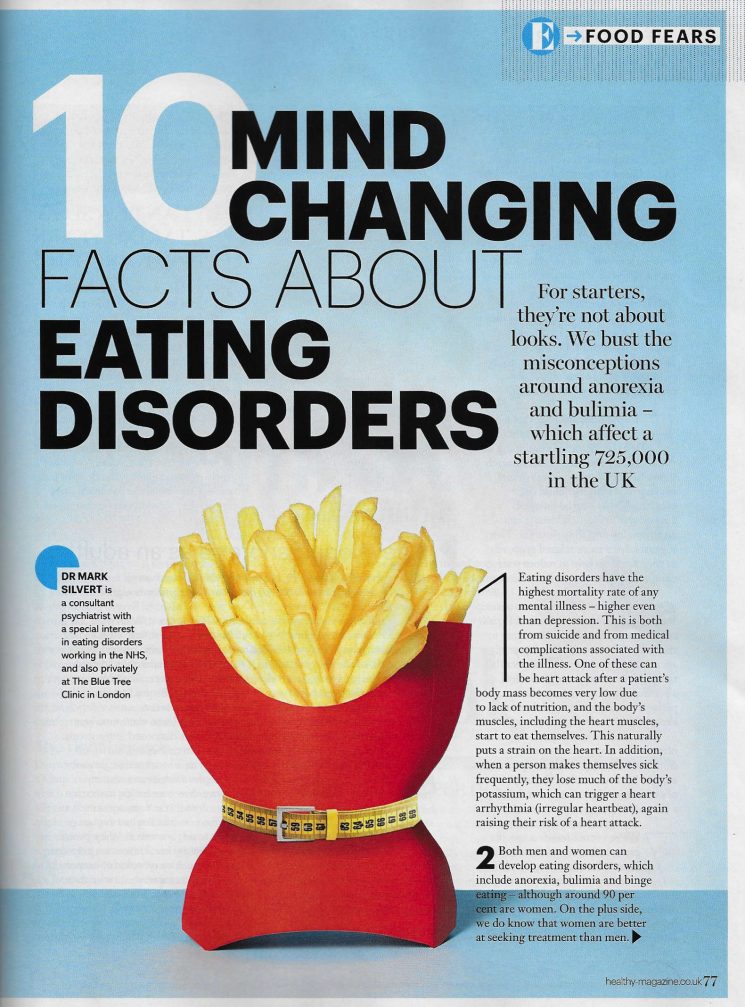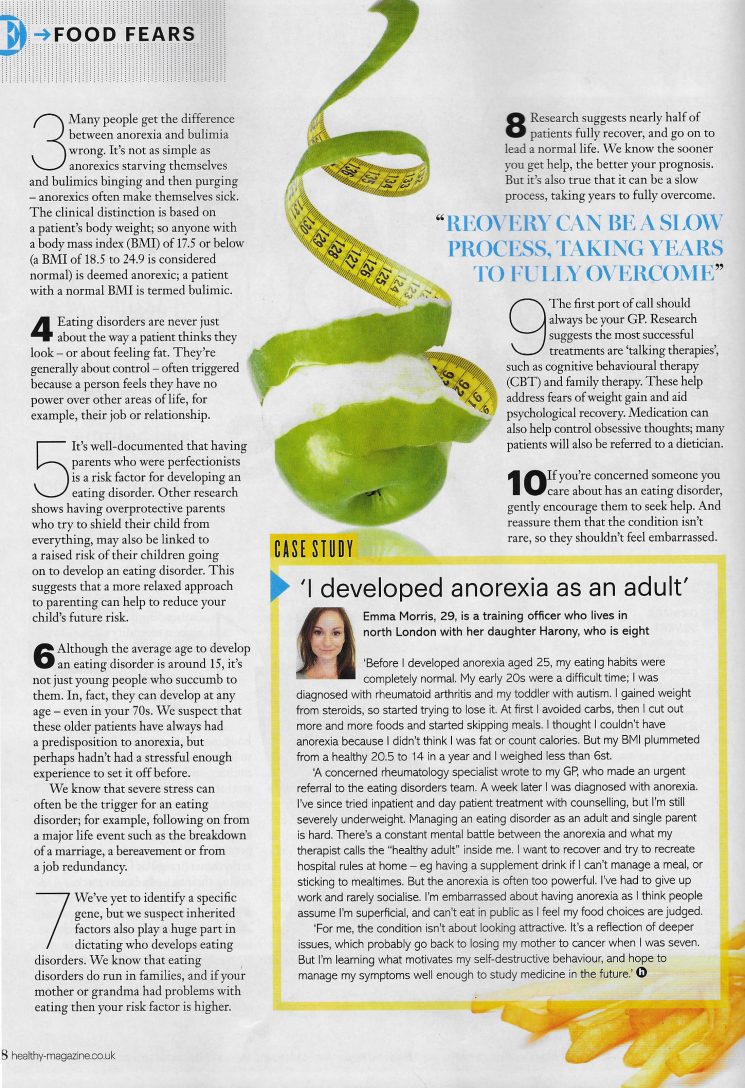Anti-depressants: Facts v fiction – should you take them?

Anti-depressants: Facts v fiction – should you take them?
Last summer, Heidi Scrimgeour joined the tens of thousands of Britons who are on anti-depressant medication. A combination of factors – family concerns, work, being given notice on a rented house unexpectedly – tipped the 41-year-old over an unexpected edge.
“I’d never thought of myself as someone who would ever need anti-depressants,” says Scrimgeour, a journalist, and media trainer who lives in Ballycastle, Antrim, with her husband and three children. “I had a sort of pride about it. I’m embarrassed to say it now, but I thought it was a kind of weakness. I can’t believe I ever felt that way.”
Scrimgeour is far from unusual in her mixed attitudes towards one of the UK’s most commonly prescribed but misunderstood medications.
Last week, psychiatrists and mental health experts were hailing a new University of Oxford study published in The Lancet, which they say has settled the question of whether anti-depressants work. The researchers analyzed data from 522 trials involving 116,477 people and concluded that 21 common anti-depressants were all more effective at reducing symptoms of acute depression than placebos.
The drugs do work – but which is best?
In the UK, there are several types of anti-depressant recommended for use by the National Institute of Health and Care Excellence (NICE) which you are likely to be offered. The first that people tend to encounter are known as selective serotonin reuptake inhibitors (SSRIs) such as fluoxetine (known as Prozac), which stop the brain getting rid of serotonin – the neurotransmitter which is connected to feelings of wellbeing.
What about the side effects?
One of the myths about anti-depressants is that they become impossible to stop. “They are not addictive drugs; in 15 years I have never seen anyone addicted to Prozac.” But he also points out: “They are not a quick fix. They take several weeks to work so you may have to be patient.”
Are anti-depressants enough?
The problem may not lie with the medication at all, he says, but in the way, it is prescribed via busy GP surgeries. “You cannot treat mental health in 10-minute appointments. Spend an hour and a half with a new patient exploring the biological and social aspects to their illness. We talk about the emotional, sexual, financial and familial problems which may have contributed to how they feel. Medication will get you on your way – like paracetamol easing the symptoms of a chest infection. But therapy is like the antibiotic which will make you well.”
The Challenges of Caring For Someone with an Eating Disorder

The challenges of caring for someone with Anorexia Nervosa
Our psychological practitioner, Thea Sundrehagen discusses what it is like for carers of people suffering from Anorexia.
“Anorexia nervosa can be difficult to understand and relate to.
If you think about it, however, perfectionism and a need for control, two personality traits associated with the disorder, are easy to imagine.
Those who suffer from anorexia nervosa are a unique group, facing a series of unique challenges. Engaging with their social and educational/occupational environment can be very difficult due to both the physical and psychological symptoms of the disorder.
Below is a list of some of the psychological and physiological symptoms characteristic of the disorder. Psychiatrists and psychologists at The Blue Tree Clinic hope this list can help you understand a bit more about what your friend or family member is going through.
• One dominant psychological symptom of the disorder is shame associated with eating, which can be experienced as all-consuming and highly disabling in everyday life.
• Patients with anorexia nervosa also report feelings of mental discrepancy in a period of wellness (remission), which can manifest as a sort of identity crisis. To elaborate, they may experience a feeling of not being the person they see themselves as or feel like on the inside, as they don’t think they are “thin enough”. This is often a cause of relapse and is, therefore, a target in e.g. CBT treatment, which focuses on a reappraisal of symptoms as damaging or even life-threatening.
• Due to the positive emphasis they typically place on many of their physiological symptoms, particularly weight loss, the idea of getting better tend to conflict with their wishes. This can result in various treatment-resistant behaviours, and may even result in them refusing treatment all together.
• The physical symptoms and associated medical complications (e.g. infertility, metabolism problems, exhaustion) may have a grave impact on both romantic and social relationships, as well as on general satisfaction with and quality of life.
• Those who suffer from anorexia nervosa typically also suffer from other disorders such as anxiety, depression, and OCD.
In light of this, it is not surprising that caring for patients with anorexia nervosa can be very challenging. Parents report anorexia nervosa to be chronic and disabling. Caring for someone with anorexia nervosa can be an even larger burden than caring for family members with psychosis.
Ultimately, due to the stress related to the responsibility of caring for someone with anorexia nervosa, it is important that you take care of your own mental health alongside supporting your loved one. Whether you talk to a friend, a family member, or a mental health practitioner, it is crucial that you do not carry the burden on your own.
For more information about anorexia nervosa or other eating disorders, or to book an appointment for your friend or family member, please get in touch with The Blue Tree Clinic through our website.”
Source URL: https://thebluetreeclinic.com/challenges-caring-someone-eating-disorder/
Seasonal Affective Disorder - The Blue Tree Clinic

Seasonal Affective Disorder - The Blue Tree Clinic
London Training Psychologist Maddy Lykourgos from the Blue Tree Clinic describes more information about SAD…
As the winter months draw nearer and the days get shorter, it is inevitable that many of us will start to feel a shift in our mood. However, for approximately 8% of the UK population who have severe Seasonal Affective Disorder (SAD) and a further 21% that have many of the symptoms of SAD, it is a particularly debilitating time of year.
What are the common symptoms of SAD?
- Persistent low mood during a particular time of year (usually winter)
- Increased anxiety and an inability to cope with everyday stress
- Lethargy, trouble waking up in the morning and sleeping for longer than usual
- Loss of enjoyment in everyday activity
- Lack of interest in socialising
- Craving carbohydrates, eating more than usual and weight gain
What are the causes of SAD?
SAD, commonly known as seasonal depression or the ‘winter blues’, is a depressive illness that is categorised by a pattern of mood changes that link with specific times of year. In the UK, this is most commonly, but not exclusively, a lower mood in the winter time compared with spring or summer.
Although the exact cause of the disorder is still fairly unknown, it is believed that it stems from the reduced number of daylight hours, which may disrupt the internal clock. Subsequently, this may be linked with a decrease in the production of serotonin (a naturally occurring neurotransmitter that is closely linked with emotion-regulation) and an overproduction of melatonin (a hormone that helps control sleep patterns).
How to cope with SAD?
There are various treatments that have proven to be effective for SAD, such as light therapy. Research shows promising results for individuals that carry out their everyday activities in front of specialist light boxes. These emit a brighter light than typical bulbs and mimic sunlight without the harmful UV rays. Additionally, dawn-stimulating alarm clocks can help by gradually getting brighter as you need to wake up.
This can ease the process of waking up during the darker, winter mornings. Regular exercise, a healthy diet and reducing stress levels also help to boost your mood during this time.
What can The Blue Tree Clinic do for you?
If the symptoms of SAD are too difficult to manage alone, there are a number of treatments available from our highly-specialized team here at The Blue Tree Clinic. For example, there are a range of talking or psychological therapies such as cognitive behavioural therapy (CBT) and counseling.
It is beneficial to have a consultation with our Private Psychiatrist, who may be able to prescribe anti-depressant medications when therapy does not suffice.
For further information or for a consultation, please do not hesitate to contact us in order for us to customize a treatment plan that will be most beneficial to you.
References and Useful Links:
https://www.nhs.uk/conditions/seasonal-affective-disorder-sad/#when-to-see-your-gp
http://www.rcpsych.ac.uk/healthadvice/problemsdisorders/seasonalaffectivedisorder.aspx
http://www.sada.org.uk/index_2.php
http://www.sad.org.uk/buying-a-sad-light/
Source URL: https://thebluetreeclinic.com/seasonal-affective-disorder/
10 Mind Changing Facts About Eating Disorders
10 Mind Changing Facts About Eating Disorders
Dr. Silvert, our founder, and expert psychiatrist is featured in Healthy Magazine. Dr. Mark Silvert is a Consultant Psychiatrist with a special interest in eating disorders working in the NHS, and also privately at The Blue Tree Clinic in London.For starters, they are not about looks. We bust the misconceptions about anorexia and bulimia - which affect a starting 725000 in the UK.
Regardless of whether you eat too little or too much, eating habits are regularly an indication of how we feel within. Our specialists are here to offer professional support in a non-judgemental, caring and collaborative approach to feel good about yourself and to take care of your general wellbeing. We offer help for those suffering from anorexia, bulimia, binge eating disorders and the families and carers of those that are unwell.
Read about the 10 fascinating facts you didn’t know about eating disorders;


Contact our friendly team of experts for a safe, comfortable conversation.
Please call us on 0800 011 9883 or contact us online here.
Source URL: https://thebluetreeclinic.com/10-mind-changing-facts-eating-disorders/
Stress | Help, Support & Treatment |The Private Therapy Clinic, London, UK

Stress | Help, Support & Treatment |The Private Therapy Clinic, London, UK
Life can be challenging. Sometimes the pressures we are under become overwhelming. Let us help you get your life back on track by showing you new ways to manage stress, so that you can reclaim control over your own life.
What is Stress?
Stress is where an individual feels they are under a lot of pressure causing an inability to cope. Stress can arise from a variety of different factors however when the stress cannot be controlled it can cause problems for the individual, mentally, emotionally and physically.
What are the symptoms?
– Tiredness
– Difficulty sleeping
– Loss of appetite
– Lack of concentration
– Headache
– High blood pressure
– Moodiness
– Irritability
– Loneliness
– Unhappiness
– Nervous habits
– Nausea
– Worry
If you believe you are suffering from some of the symptoms stated above therapy may be beneficial to you. Here at The Blue Tree Clinic our therapists and doctors are here and ready to help you deal with your Stress.
What are the types of Stress?
There are many different types Stress which range from mild to extreme;
Acute stress
Episodic acute stress
Chronic stress
How can therapy help?
Therapy can help you to understand the reasons behind why you have a sleep disorders as well as teaching you ways to cope and methods to help you sleep. Therapy has been shown to be extremely effective for individuals with sleeping disorders.
Types of therapy offered for Stress at The Blue Tree Clinic?
– Cognitive Behavioural Therapy
– Cognitive Analytic Therapy
– Psychiatric Assessment
It may be that our team believe you would benefit from medical help as well as therapeutic help in which case we may suggest private psychiatric treatment where a psychiatrist will assess you and decide whether physical tests or medication would help. It has been found that medication can at times be successful in helping individuals suffering from Stress.
How can The Blue Tree Clinic help you?
Stress is a part of everyday life but when stress begins to take over your life you should consider looking for help. At The Blue Tree Clinic, Private Therapy Clinic - we want to help you! Stress is unpleasant for everyone regardless of the cause. Stress is not only problematic for you but also your body, your mind and your mental wellbeing. Here at The Blue Tree Clinic we have professionals who are trained in helping you fight your stress. Our therapists will assess your symptoms and look into providing the best possible care for you.
Your therapist will begin to give you therapy, this may be from one therapy type or multiple. Gradually your therapist will teach you tool and techniques which can help you to relieve your stress and allow you be more relax and calm. Your therapist will ensure that you are able to use these techniques outside of the therapy setting in a way that suits you. We know stress can be hard to control so your therapist will make sure you are well equipped to deal with stressful situations after you have finished your therapy with us.
Source URL: https://thebluetreeclinic.com/stress/
The psychological impact of being robbed

The psychological impact of being robbed
Blue Tree intern Maddy Lykourgos discusses the impact of crimes such as burglary…
Breaking news stories exhibiting criminal activity continue to percolate all media making us feel unsettled at the possibility that we could be next. The thought that someone intends to do us harm as an individual can leave us feeling confused and powerless, wondering what we could’ve done to prevent it. Theft-related offences make up a large percentage of crimes reported, and statistics are disproportionally high in London. As much as the media may focus on the psychology of the perpetrator, society often forgets about those who fall victim to such crimes; their suffering can far exceed the replacement of mere belongings.
With the example of burglary, even without any personal items being taken, having a stranger in your house, without your knowledge, can feel like a violation of your space and of your security. This level of distress often causes individuals to blame themselves, perhaps for not locking a window, or double-checking that the door was bolted. This may be made worse by the loss of significant and irreplaceable items, preventing people, especially young children being assured that they can feel safe in their homes again and sleep through the night.
It is vital to remember that being burgled is not your fault. Nonetheless, the traumatic impact of a burglary can linger, even after this rationalisation. Some people may cope by taking control back and improving home security to stop it happening again. A few things that can give people peace of mind are leaving lights on when the property is vacant, double (or even triple) checking locks or pooling community funds for nightly patrol cars.
However, the extent to which this type of crime can affect us is often unexpected and underestimated. Anger, fear, vulnerability and even physical symptoms, like nausea and headaches, comprise some of the reactions to this type of trauma that people may experience. Although most people don’t suffer long-term from a crime of this sort, occasionally the emotional distress can leave you feeling symptoms of anxiety, post-traumatic stress disorder or depression that may persist.
It is important that you don’t ignore these symptoms. People are all too quick to try and ‘get over it’, but it’s important to work through at a pace that suits you. Counselling and cognitive behavioural therapy are just some of the ways to provide support in managing the emotional impact of crime.
If you find yourself suffering due to burglary or any other crime, get in touch with our Private Psychologist for more information on how we could help your cope following your traumatic experience.
Source URL: https://thebluetreeclinic.com/psychological-impact-robbed/
Our Psychiatrist’s Column on Anti-Depressants Study in the news last week

Our Psychiatrist’s Column on Anti-Depressants Study in the news last week
As a consultant psychiatrist I have received a tonne of emails and messages in the past week about the news relating to the Lancet’s publication of the meta-analysis of 522 randomised control trials into the effectiveness of anti-depressants.
And people want to know what I think, seeing as I prescribe anti-depressants on most days of the week. Fair enough. So this is what I think..
I think it’s irresponsible journalism to yell from the roof tops that up to one million of us should be taking medication for depression. For the record Professor Geddes, said “It is likely that at least one million more people per year should have access to effective treatment for depression, either drugs orpsychotherapy.”
He did not say one million people need to be on medication.
Do we really want to become a mini-America? I think we know the answer to that.
Rewinding for just a second here, before I was even a headache in the Dean of Admission’s brain when I was re-applying to medical school I was prescribed anti-depressant medication. So I don’t need these double blind RCTs to tell me that anti-depressants are not a placebo. Thanks anyway.
In a 12 month period whilst at school my grandmother died from lung cancer very suddenly, my mother was diagnosed with a brain tumour and my aunt, who was my inspiration and role model to apply to medicine, was diagnosed with a terminal brain tumour and passed away. And I was about to fail my A-levels in spectacular fashion.
My world felt a bit precarious to say the least and I was very anxious. So before long, I found myself sitting on a charming elderly psychiatrist’s couch. He was kind and empathic and after talking to me for a while, he wrote me out a script for Paroxetine. Big mistake.
Placebo? What placebo. The next day I felt amazing. Anxiety? What Anxiety?
I was experiencing the high you get as if main-lining “Californian Rocket Fuel”. A term popularised by the psychiatrist Stephen Stahl when you get a hit of serotonin and noradrenaline.
But the problem was that I really did not need medication, I was not depressed. I was dealing with some difficult life situations. Family bereavements of dearly loved family members and pure fear of the future with a dash of adolescene thrown in for good measure.
The medication made me worse at a time when I needed stablility and some good therapy, not taking off like Falcon Heavy into the Florida sky.
It also made me numb to what was going on. I felt great. I did not care about school, my grades or well anything really. I had gone from the sublime to the ridiculous. And don’t get me started on the weight gain that took me many years to sort out afterwards.
It did, I hope, however make me a better psychiatrist many years later.
Because hearing all this you might think I am anti-medication. Nothing could be further from the truth. If I had been unable to get up in the morning, go to work, or school, or felt suicidal – If I was unable to function well, then the decision to take medication would have been the correct one.
But I was only mildly anxious, not unable to live my life. There are too many people on medications that do not need to be on them.
Life can be difficult and throwing pills at a patient is not the answer.
GPs have 10 minutes, so when you go in with your problems, emotional, sexual, physical, financial, do you think they have time to help? Very unlikely. They are not God. They are stressed out often more than you are. Not a recipe for success.
So now this study has come out – you are going to leave your primary care doctor with a script of escitalopram instead of fluoxetine. Hoorah! That’s going to help you. Bye. Next patient please.
What a sorry state we find ourselves in.
Medications help the symptoms of depression and anxiety, but they don’t cure the under-lying problem, and this is what I explain every single day to my patients. I am delighted to help people that need medications to help them get back to work, stop their obsessive thinking, their severe anxiety and depression, eating disorders and psychotic illnesses. However for some common mental health problems, if you want to solve it, get a psychiatrist who does more than write you a script and says “see you in six months for review”.
Get a therapist you like and trust, who practices a therapy that is evidence-based and you feel works for you. Genetics also plays a huge role in who may or may not get depression, and there is nothing we can do about that. So you may indeed need medication for a long time, possibly for life, but it still needs monitoring and lower doses are better than higher ones.
Every week in clinic I get patients from around the world, (especially, yes you guessed it, the good old U.S. of A) on a cornocopia of pills that they do not need or have long stopped working in the way they were intended to.
In my case I was given an SSRI (antidepressant) medication and left on it without any check-ups until I took matters into my own hands, and stopped it by myself. I was 17, I had no idea what I was doing. But I knew that gaining kilogram after kilogram and failing my A-levels because I simply did not care about them or anything else at that time was not a recipe for success.
The inappropriate use of medication when I was pre-med, has hopefully made me a better doctor. Because this doctor will not be writing you a script for anti-depressants unless you really need it and we think it through over an hour, not in 10 minutes.
Source URL: https://thebluetreeclinic.com/psychiatrists-column-anti-depressants-study-news-last-week/